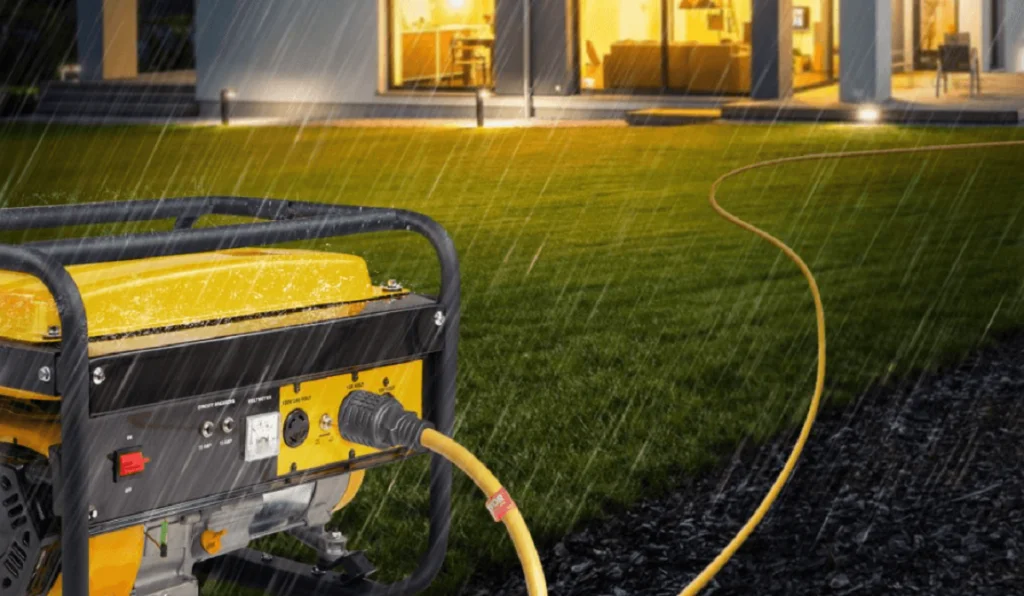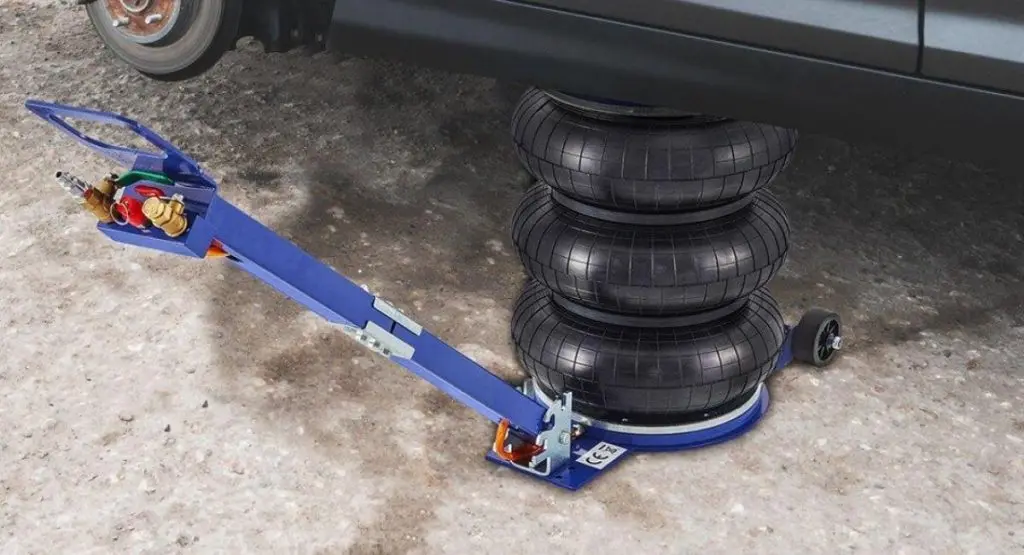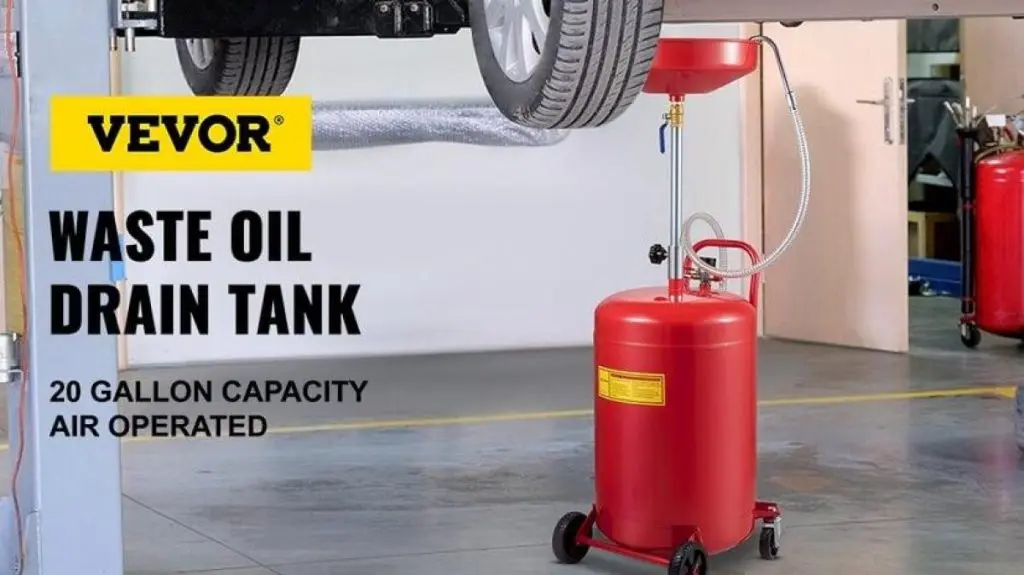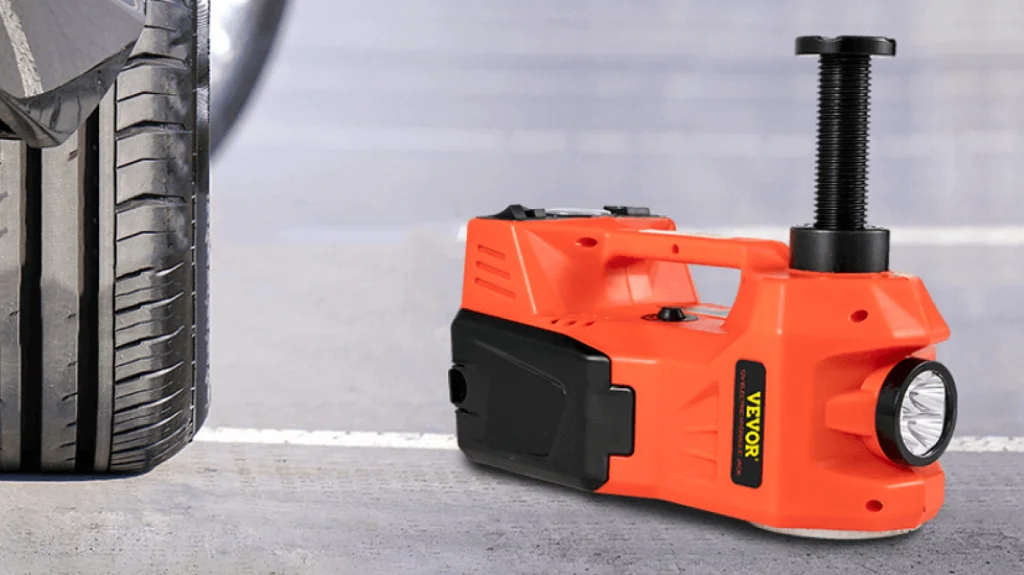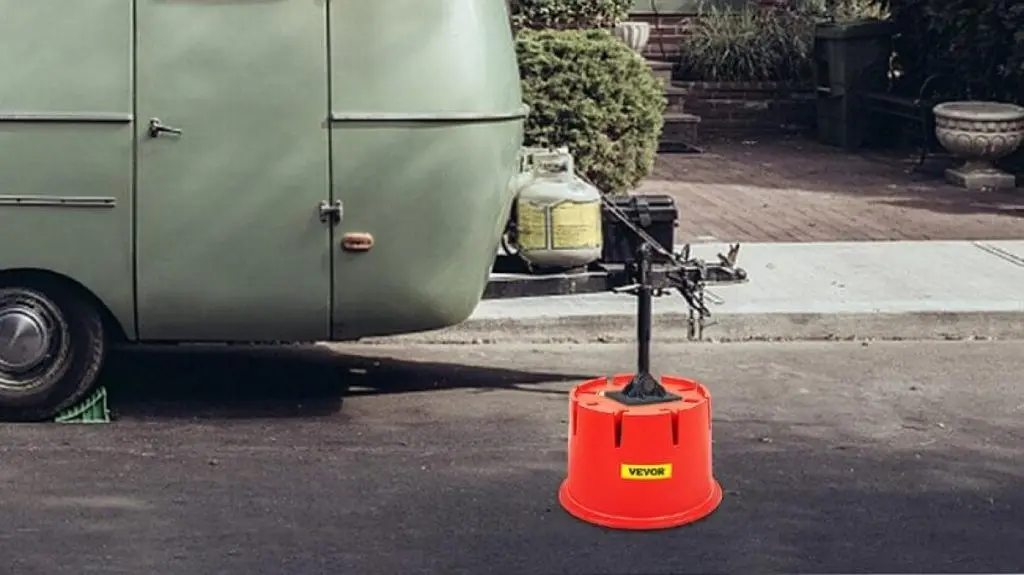One of the most important things that any RV enthusiast needs is a good extension cord. An extension cord will allow you to run all of your favorite RV appliances, while potentially also charging the RV battery. However, the issue is that not all RVs use or need the same kind of extension cord.
That said, choosing the right extension cord for your RV is crucial to its ability to provide your RV and its appliances with enough power to run properly. This is exactly what we are here to help you with today, choosing the right RV extension cord. We’ll talk about all of the most important factors to consider, and so much more.
Table of contents
Extension Cords: An Introduction
Extension cords for RVs are special cables that are designed to deliver electricity specifically to RVs or recreational vehicles. When an RV is parked, it generally cannot use its own battery for power, as this would require the RV to be running, which would waste gas, not to mention that the battery would die very quickly.
When an RV is parked, it needs to be plugged in so that it can power all of your favorite appliances, like the TV, fridge, water pump, air conditioner, and more. RV power cords however aren’t the same as regular extension cords.
These are designed to handle more amps than regular extension cords, and they have different plug types too. They’re also usually built out of different materials than standard home extension cords, all things which we will cover below when discussing how to choose the best RV extension cord for your needs.
Understanding the Specs of an Extension Cord
In order to understand how to choose an extension cord, you need to be aware of the different specs to look out for.
Watts
Watts is a measure of power, and how many watts an extension cord is rated for helps determine the maximum load of power it can handle safely. The higher the watts are, the more volts it can handle. The wattage of the cord in question has to equal or exceed the maximum watts your appliances will draw.
The Amps
Although related, watts and amps are not the same. The amps refer to the maximum current that the cord of the RV can handle. The two main amp ratings for RV extension cords include 30 amps and 50 amps, with a higher amp rating being better for applications that draw more power, which is important for larger RVs. A 50-amp cord like this one from VEVOR is a perfect option to consider.
Length
Interestingly enough, the longer the extension cord in question is, the more of a power drop there is. Therefore, although longer cords can be convenient in some cases, the reality is that the longer the cord is, the harder it will be to supply all of your appliances with adequate power.
The Jacket
Perhaps one of the most important considerations when choosing an RV extension cord is the jacket. This refers to the outer material or layer that covers the vital inner components. This jacket is needed to protect the extension cord from weather and physical damage. A good RV extension cord should have a thick and durable jacket that is ideal for outdoor use, something made of vinyl, rubber, or a composite of the two.
Insulation
A good RV extension cord needs insulation, which is meant to stop electrical shorts and leaks from occurring. Rubber and PVC both make for good power cord insulation materials. How safe and durable the cord ends up being is also determined by the type and amount of insulation the cord has.
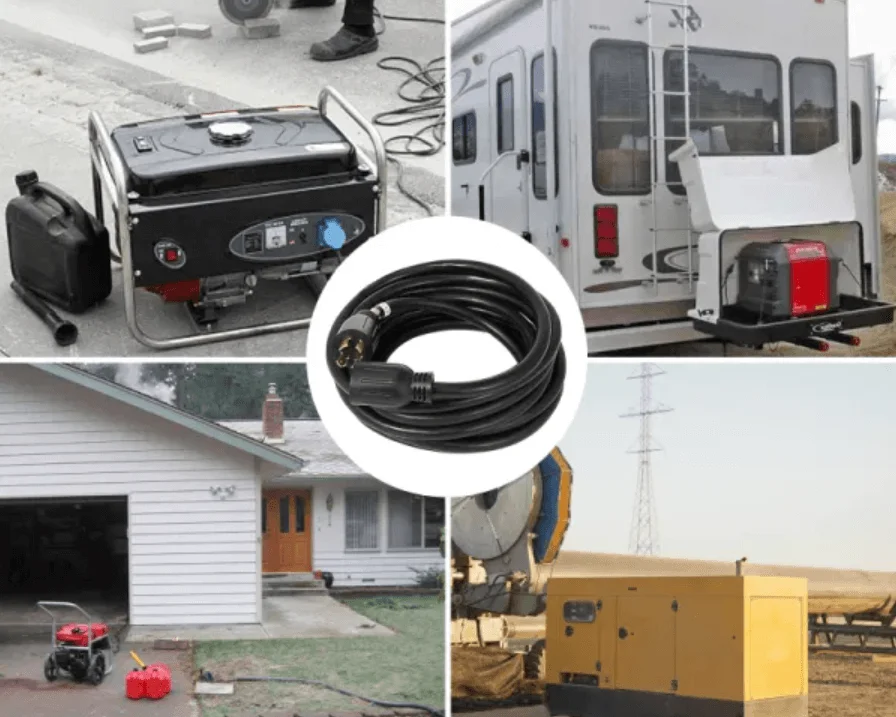
Different Types of Extension Cords: Indoor vs Outdoor
Before you start making choices, you also need to consider that there are both indoor and outdoor extension cords, and they are built very differently. For instance, indoor extension cords generally have a much thinner jacket with less insulation, as they are not designed with the same kind of durability or weather resistance in mind.
Furthermore, indoor power cords usually don’t have the same power capacity and capabilities as outdoor extension cords, especially where amps and watts are concerned. RV power cords just have much higher capacities, which is needed for those big RV appliances. On that note, the connector or plug design is generally different too, and more robust than indoor extension cords.
How to Choose an Extension Cord: What Extension Cord Do I Need?
The most important thing that you need to know when choosing an extension cord for your RV is that there are several important factors that you have to consider.
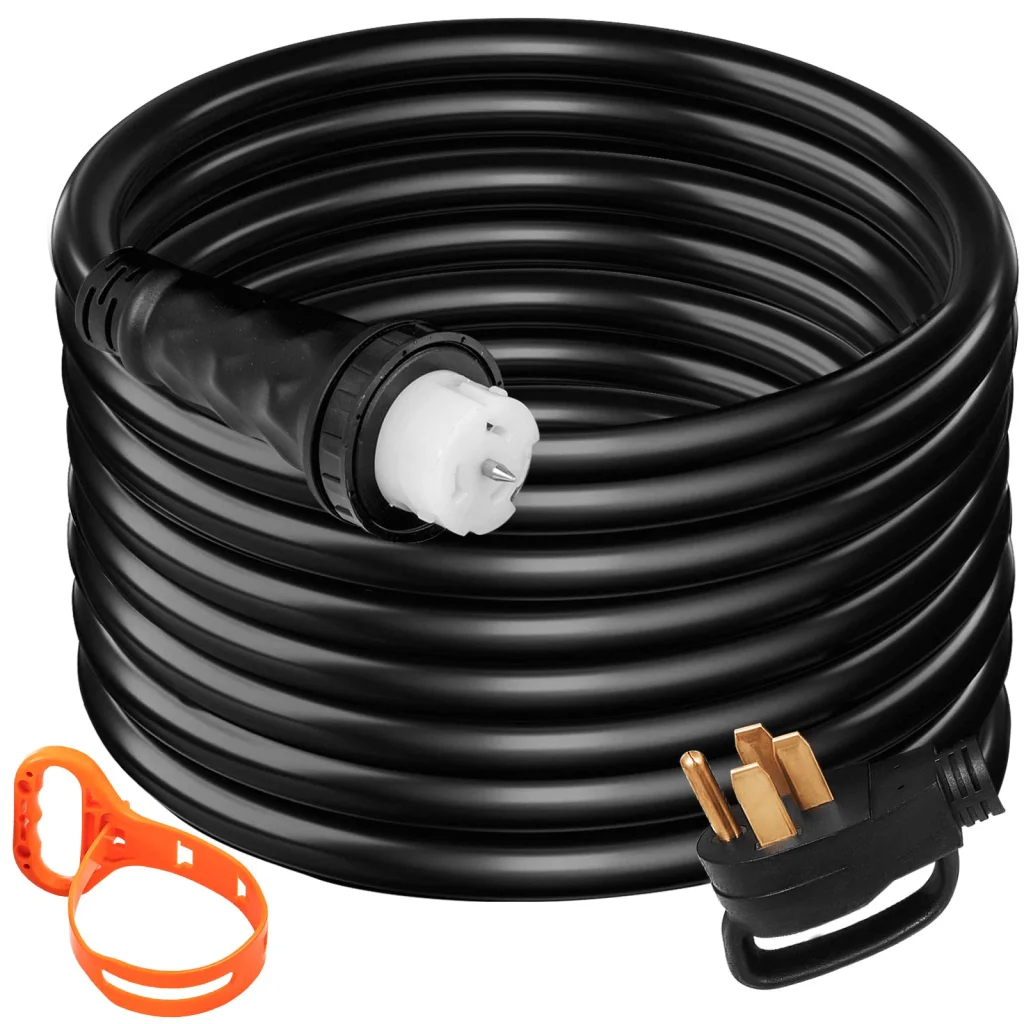
Factors to Consider When Choosing an Extension Cord
In order to choose the right RV extension cord for your needs, there are a number of factors that you need to pay attention to, including the following. If you keep the tips in mind as listed below, you should have no problems choosing the right extension cord for you and your needs.
The Gauge
Perhaps the most important consideration when choosing an RV extension cord is how thick the wire is, also known as the gauge. The issue here is that RVs usually need a lot of power to run their appliances, such as air conditioners and heaters, fridges and stoves, and more.
Generally speaking, a lower gauge is required for this, as a lower gauge cable can handle more amps, therefore reducing the risk of overheating. For example, a 10-gauge cord would be better suited for an RV than a 16-gauge cord, which would be better for lighter applications.
Plug Type
The plug type of the RV extension cord in question is also very important to consider. There are a few specific types of plugs that RVs use, and your cord will need to be compatible.
For instance, smaller RVs often use a plug type known as a 30-amp NEMA TT-30P, whereas much larger units may require something like the 50-amp NEMA 14-50P.
Not only do you need to ensure that the cord in question is suitable for your RV, but that it also matches the plug type at the RV park or charging station you are going to be staying at.
Length
Although this may not be the number one most important point to consider, the length of the RV extension cord in question makes a difference too. Now, you might think that longer is always better, which is however not always true.
Yes, a longer extension cord will provide you with more reach, but there is a problem with longer cords, which is that the longer the cord is, the more of a voltage drop there is.
In other words, the longer the cord, the more power is lost along the way, which can be problematic when you have appliances that require lots of power. This 75’ RV Extension Cord is a great option to consider on this front.
Amps
The amps or amp rating of the RV extension cord matters as well. The amp rating of your cord must be equal to or greater than the maximum amps or current that your RV draws.
If you have a small or medium size RV, you’ll likely require a cord rated for 30 amps, whereas a larger RV that draws more power will likely require a 50 amp cord, or more.
If you can’t deliver enough amps to your appliances, then they won’t work properly. In some cases, a lower-capacity 30-amp cord like this one from VEVOR should do fine.
Flexibility and Materials
You should also pay attention to how flexible the power cord in question is and what kids of materials it is made of. Some cords are built with much thicker and heavier materials, which is a bonus in terms of overall flexibility.
However, the issue with thicker cords is that they are much less flexible, resulting in decreased maneuverability. You do need the cord in question to be somewhat flexible, as this will make your life much easier as far as storage is concerned.
Weather Protection
Related to the above point of materials, not all extension cords are built the same, and not all are meant to withstand everything that mother nature has to throw at them.
However, as far as your RV is concerned chances are that you’ll be spending a good deal of time outdoors, or at least the cord will. In this case, you want an RV extension cord that is highly rated in terms of overall weather resistance. An RV extension cord should be able to withstand extreme temperatures, moisture, UV light, and weather of all sorts.
Extension Cord Safety and Maintenance Tips
To help ensure your safety when choosing and using RV extension cords, let’s go over some simple yet important safety tips.
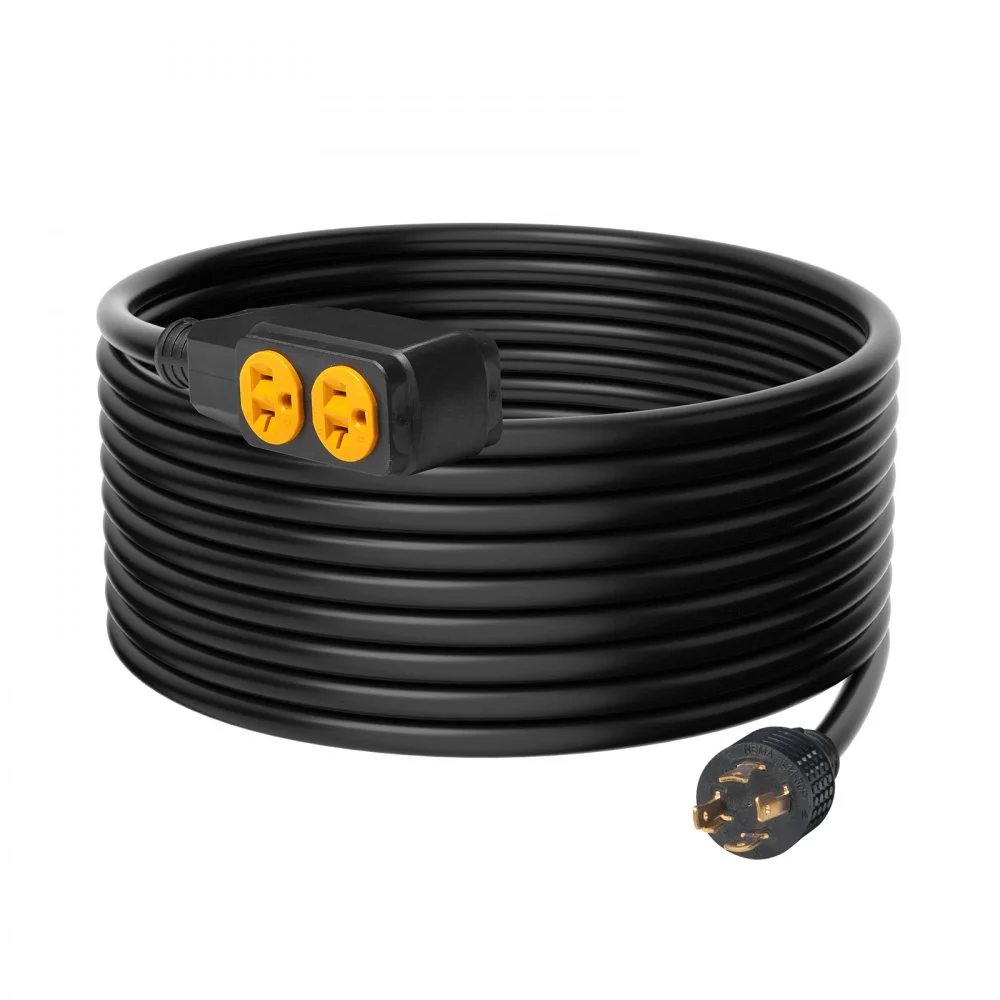
- Always inspect the extension cord before use. Never use a cord without first checking to ensure that it is not damaged.
- Before using an RV extension cord, make sure that it is of the right type and rating for your needs. You generally need an outdoor cord with a high watt and amp rating.
- You should always keep all connection points dry and free of debris. Electricity and water don’t mix, so you never want water at the connection points.
- Never overload the RV extension cord, which means that you should never go over the recommended capacity rating for the RV extension cord in question. Pushing a cord past its limits could cause it to overheat and catch fire.
- Never cover the cord. Heat can build up over time, and this can cause a fire. Keep the cord free of any covers while in use, as this will allow heat to dissipate.
- If at all possible, do not daisy-chain multiple extension cords together. Use a single cord whenever possible.
- When you aren’t using the extension cord, proper storage is essential. Keep it clean, dry, and free of debris.
Conclusion
There you have it, everything you need to know about choosing the right extension cords for your RV. By following all of the tips and considerations that we have discussed today, you can ensure that you choose the right RV extension cord for you and your needs. Remember, choosing the right extension cord for your RV is about more than just supplying appliances with power, but safety as well.

